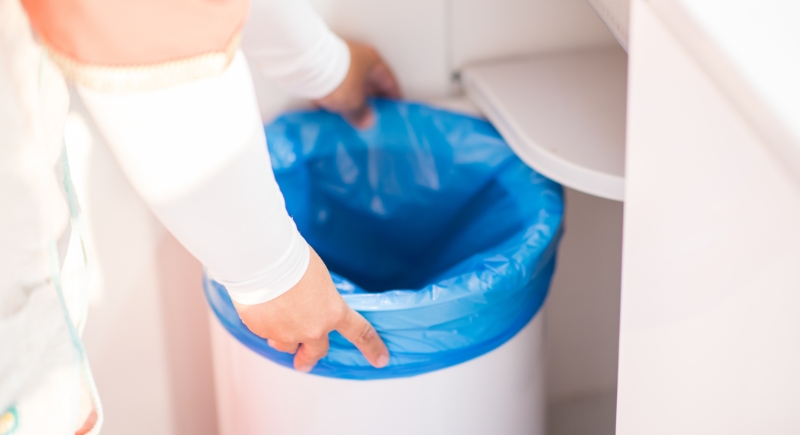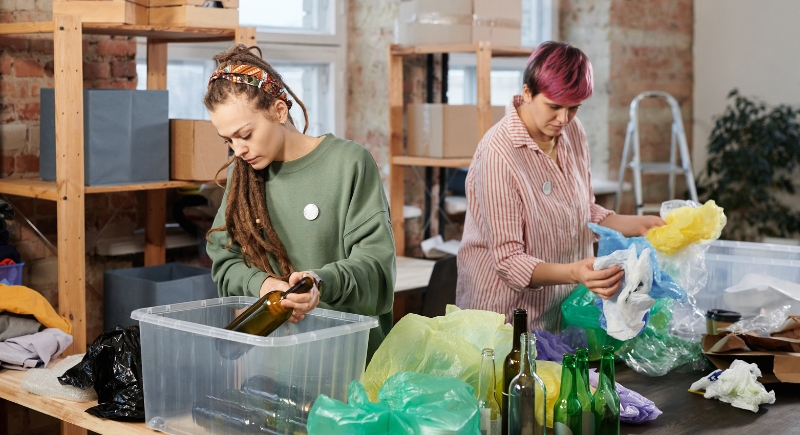Why My Grandma’s Strange Habit of Washing Her Garbage Was Actually Genius
One unusual cleaning habit passed down in some households involves rinsing garbage before throwing it out. The idea came from households where kitchen cleanup had to be efficient because the trash cans weren’t lined with scented bags, and cleaning them regularly wasn’t part of the routine.
For this reason, rinsing garbage kept things manageable when waste removal wasn’t as automated or convenient as it is now. It may sound unnecessary at first, but this small action creates noticeable benefits in day-to-day home maintenance.
Keeps Garbage Cans Clean Longer

Image via Canva/Zurijeta
Unwashed containers in the trash often carry liquids, sauces, or residue that leaks or spills over time. These remnants collect inside garbage bags and eventually reach the bottom of the can, while causing buildup that’s hard to clean and often smells unpleasant.
However, a quick rinse removes sticky or greasy residue and stops leaks before they start. As a result, the inside of the garbage can stays dry and far cleaner. There’s less need to scrub out the can regularly or deal with dried spills that attract pests. Garbage bags also last longer when not weighed down by scraps or liquids.
In a kitchen that is frequently used, this action significantly reduces the effort needed to keep the space clean. Rather than scrubbing out the garbage can weekly, it cuts down on mess at the source and saves time during regular cleaning.
Cleaner Trash Means Odors Are Less Likely to Build
You may have noticed that kitchen trash usually smells because food remnants continue to decompose after being thrown away. Even small amounts of leftover food stuck in containers can produce strong odors within hours. But the good news is that washing out these items before discarding them removes the source of the smell. This helps maintain a cleaner-smelling kitchen and reduces the need for odor-blocking products like scented liners or air fresheners.
In households without daily trash collection, the benefit becomes even more noticeable. Dry trash simply doesn’t rot the same way. Eliminating remnants can help stop the growth of bacteria and mold that can grow in warm, closed bins.
Washing Trash Improves Recycling Results

Image via Pexels/Julia M Cameron
Most people are not aware of this, but households play a key role in how well local recycling systems function. One of the simplest ways to support those systems is by rinsing recyclable containers before discarding them. Objects like jars, cans, and plastic tubs need to be free of food residue to avoid contaminating an entire batch. When dirty items are mixed in, recycling centers tend to reject everything in that load and send it straight to a landfill.
This is why a quick rinse keeps containers clean, reduces the chance of contamination, and helps more materials get reused. Clean recyclables also keep bins more sanitary and discourage pests. Consequently, rather than sorting through dirty recyclables later, you can stay ahead of the mess.